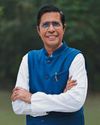
India’s tryst with literary gatherings can be traced back to ancient times when people gathered to listen to discourses by learned peers. So, it was only a matter of time before someone sniffed the potential of literature festivals in the country. The Jaipur Literature Festival (JLF) marked the beginning of the era of literary gatherings in India with its debut in 2006.
Now a literary extravaganza, JLF had quite a modest beginning with participation of about 18 writers and 100 attendees. While the footfall runs into six-digit figures now, the festival also has a significant digital presence, with over 25 million digital views in 2023, as per the JLF website.
JLF may not be representative of all literature festivals in the country—few can claim to be anywhere close to it—but it did pave the way for others. Delhi, Kolkata, Hyderabad, Bhubaneswar, Bengaluru, Mangaluru, Ahmedabad and several other places have already been hosting their own literature festivals.
Over the years, literature festivals have transformed themselves as spaces that offer an enhanced sensory experience, rich with possibilities of dialogues, tête-a-tête with glitterati and Instagrammable settings, unlike the usual book fairs which are primarily focused on sales. “Book fairs are organised with the primary objective of sales, showcasing the widest range of books for distributors, students and wholesalers to make purchases. Literature festivals revolve around starting a dialogue and showcasing the literary prowess. They showcase an author and celebrate their work, scaling up the way in which they are conversing about their ideas,” says Pallavi Narayan, divisional lead for corporate communications at publishing house Penguin Random House India. Book fairs these day ons and discussions around their books, but literature fests offer something else, she adds.
Bu hikaye Outlook Business dergisinin January 2024 sayısından alınmıştır.
Start your 7-day Magzter GOLD free trial to access thousands of curated premium stories, and 9,000+ magazines and newspapers.
Already a subscriber ? Giriş Yap
Bu hikaye Outlook Business dergisinin January 2024 sayısından alınmıştır.
Start your 7-day Magzter GOLD free trial to access thousands of curated premium stories, and 9,000+ magazines and newspapers.
Already a subscriber? Giriş Yap

From Chandni Chowk to Global Recognition
For Manish Aggarwal, director at Bikano, Bikanervala Foods, the family business was not just a responsibility but a passion he took to the global stage

Spotting AI Scams
Al has become an integral part of our lives, from customer service no insurance claims. But it is also becoming a tool for fraudsters who use it to scam individuals and corporations

Let a Hundred Flowers Bloom
On the banks of the Ganges in industrial Kanpur, a start-up has blossomed that turns waste flowers into incense

BATTERY LOW
India produces enough green energy to power many of its largest cities yet lacks the storage to use it efficiently. A nation blazing forward must leap ahead in battery technology to stay on course

We Have Everything Going for Rajasthan
Rajyavardhan Singh Rathore, Rajasthan’s industry and commerce minister, tells Pushpita Dey why the state is suited to become a hub for investments.

Dairy and Other Dilemmas
India’s refusal to open its dairy market has complicated trade negotiations for years. As global partners demand concessions, is the cost of protectionism outweighing benefits?

Riding in a Maze
As gig workers ride into an uncertain future with little more than a smartphone and a bike, the government is struggling to arrange a socialsafety net. But millions without social security is recipe for disaster

BIRLA'S BIGGEST BATTLE
As Kumar Mangalam Birla completes 30 years at the helm of the Aditya Birla Group, he has a battle to defend his businesses and conquer new ones

THE INNOVATION LEAP
India dreams of becoming a product nation. But unless the corporate sector significantly increases spending on R&D, the country will continue to lag behind global peers

EDUCATION BUDGET MUST DOUBLE EVERY 3 YEARS
Veezhinathan Kamakoti, a renowned academic and director of Indian Institute of Technology Madras, tells Deepsekhar Choudhury on what technology sovereignty means for India and how it can propel the country towards its vision of becoming a developed nation by 2047.